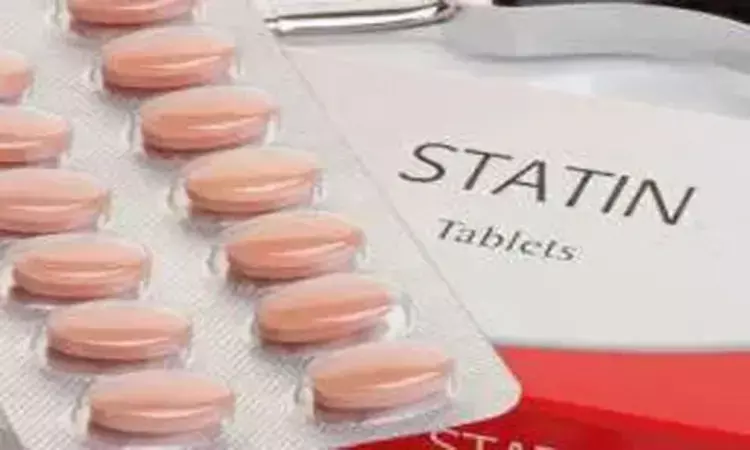- Home
- Medical news & Guidelines
- Anesthesiology
- Cardiology and CTVS
- Critical Care
- Dentistry
- Dermatology
- Diabetes and Endocrinology
- ENT
- Gastroenterology
- Medicine
- Nephrology
- Neurology
- Obstretics-Gynaecology
- Oncology
- Ophthalmology
- Orthopaedics
- Pediatrics-Neonatology
- Psychiatry
- Pulmonology
- Radiology
- Surgery
- Urology
- Laboratory Medicine
- Diet
- Nursing
- Paramedical
- Physiotherapy
- Health news
- Fact Check
- Bone Health Fact Check
- Brain Health Fact Check
- Cancer Related Fact Check
- Child Care Fact Check
- Dental and oral health fact check
- Diabetes and metabolic health fact check
- Diet and Nutrition Fact Check
- Eye and ENT Care Fact Check
- Fitness fact check
- Gut health fact check
- Heart health fact check
- Kidney health fact check
- Medical education fact check
- Men's health fact check
- Respiratory fact check
- Skin and hair care fact check
- Vaccine and Immunization fact check
- Women's health fact check
- AYUSH
- State News
- Andaman and Nicobar Islands
- Andhra Pradesh
- Arunachal Pradesh
- Assam
- Bihar
- Chandigarh
- Chattisgarh
- Dadra and Nagar Haveli
- Daman and Diu
- Delhi
- Goa
- Gujarat
- Haryana
- Himachal Pradesh
- Jammu & Kashmir
- Jharkhand
- Karnataka
- Kerala
- Ladakh
- Lakshadweep
- Madhya Pradesh
- Maharashtra
- Manipur
- Meghalaya
- Mizoram
- Nagaland
- Odisha
- Puducherry
- Punjab
- Rajasthan
- Sikkim
- Tamil Nadu
- Telangana
- Tripura
- Uttar Pradesh
- Uttrakhand
- West Bengal
- Medical Education
- Industry
Preoperative Statin Use Lowers Risk of Blood Clots Following Hip Arthroplasty: Study

A recent study published in recent issue of The Journal of Arthroplasty revealed that preoperative statin use is associated with a significantly reduced risk of venous thromboembolism (VTE) within 90 days following total hip arthroplasty (THA). Despite advances in surgical techniques and postoperative care, VTE remains a major cause of complications for patients undergoing this procedure.
This research analyzed data from a total of 1,154 patients between January 1, 2012, and June 1, 2023, to determine whether statin medications, commonly prescribed for cholesterol management, could lower the risk of VTE events after hip replacement surgery.
The patients included in the study used statins for at least 4 weeks prior to surgery. The study tracked outcomes like VTE events, deep vein thrombosis (DVT), pulmonary embolism (PE), emergency department (ED) visits, readmissions, reoperations, and mortality rates within 90 days post-surgery.
The results found only 0.43% of patients who used statins experienced a VTE event, when compared to 1.13% of non-statin users by marking a statistically significant reduction (P = 0.047). Also, there were no significant differences in the rates of PE, DVT, ED visits, readmissions, or reoperations between the statin and non-statin groups.
This study found no deaths in either group within the 90-day postoperative period which highlighted the overall success of THA procedures in managing patient outcomes. A subgroup analysis was conducted to assess the impact of statin intensity (high, medium, and low) on postoperative outcomes. However, the findings showed no significant differences in outcomes based on statin dosage levels. This suggests that any protective effect may not depend on the strength of the statin prescribed.
The study highlights the potential role of statins in reducing the risk of blood clots after hip replacement surgery. These findings provide valuable insights for surgeons and physicians to optimize preoperative care protocols for THA patients. Further studies are imperative to explore the full scope of statins’ benefits in surgical contexts. Overall, this study highlights the importance of integrating innovative strategies like preoperative statin use to improve patient safety and recovery outcomes.
Reference:
Lan, R., Vallurupalli, N., Aggarwal, V. K., Bosco, J. A., III, & Lajam, C. M. (2025). Statin use is associated with decreased venous thromboembolism events following total hip arthroplasty: A matched retrospective cohort study. The Journal of Arthroplasty. https://doi.org/10.1016/j.arth.2025.01.033
Neuroscience Masters graduate
Jacinthlyn Sylvia, a Neuroscience Master's graduate from Chennai has worked extensively in deciphering the neurobiology of cognition and motor control in aging. She also has spread-out exposure to Neurosurgery from her Bachelor’s. She is currently involved in active Neuro-Oncology research. She is an upcoming neuroscientist with a fiery passion for writing. Her news cover at Medical Dialogues feature recent discoveries and updates from the healthcare and biomedical research fields. She can be reached at editorial@medicaldialogues.in
Dr Kamal Kant Kohli-MBBS, DTCD- a chest specialist with more than 30 years of practice and a flair for writing clinical articles, Dr Kamal Kant Kohli joined Medical Dialogues as a Chief Editor of Medical News. Besides writing articles, as an editor, he proofreads and verifies all the medical content published on Medical Dialogues including those coming from journals, studies,medical conferences,guidelines etc. Email: drkohli@medicaldialogues.in. Contact no. 011-43720751


